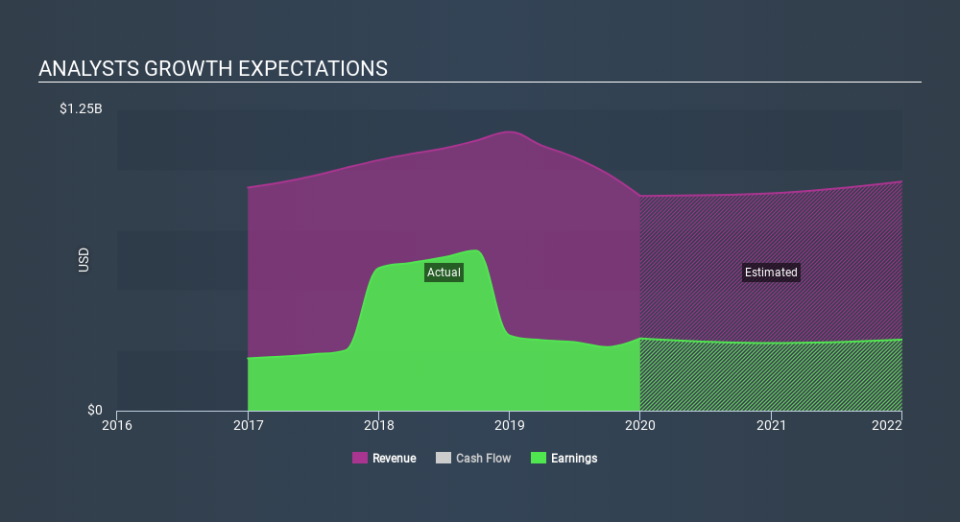Results: BankUnited, Inc. Exceeded Expectations And The Consensus Has Updated Its Estimates

BankUnited, Inc. (NYSE:BKU) shares fell 3.2% to US$34.02 in the week since its latest annual results. BankUnited reported US$891m in revenue, roughly in line with analyst forecasts, although statutory earnings per share (EPS) of US$3.13 beat expectations, being 6.1% higher than what analysts expected. Earnings are an important time for investors, as they can track a company's performance, look at what top analysts are forecasting for next year, and see if there's been a change in sentiment towards the company. Readers will be glad to know we've aggregated the latest statutory forecasts to see whether analysts have changed their mind on BankUnited after the latest results.
View our latest analysis for BankUnited
Taking into account the latest results, BankUnited's twelve analysts currently expect revenues in 2020 to be US$902.0m, approximately in line with the last 12 months. Statutory earnings per share are forecast to dip 3.7% to US$3.02 in the same period. In the lead-up to this report, analysts had been modelling revenues of US$905.6m and earnings per share (EPS) of US$3.05 in 2020. The consensus analysts don't seem to have seen anything in these results that would have changed their view on the business, given there's been no major change to their estimates.
It will come as no surprise then, to learn that the consensus price target is largely unchanged at US$38.60. It could also be instructive to look at the range of analyst estimates, to evaluate how different the outlier opinions are from the mean. There are some variant perceptions on BankUnited, with the most bullish analyst valuing it at US$42.00 and the most bearish at US$35.00 per share. The narrow spread of estimates could suggest that the business' future is relatively easy to value, or that analysts have a clear view on its prospects.
It can also be useful to step back and take a broader view of how analyst forecasts compare to BankUnited's performance in recent years. It's pretty clear that analysts expect BankUnited's revenue growth will slow down substantially, with revenues next year expected to grow 1.2%, compared to a historical growth rate of 7.9% over the past five years. Compare this against other companies (with analyst forecasts) in the market, which are in aggregate expected to see revenue growth of 4.9% next year. Factoring in the forecast slowdown in growth, it seems obvious that analysts still expect BankUnited to grow slower than the wider market.
The Bottom Line
The most important thing to take away is that there's been no major change in sentiment, with analysts reconfirming that earnings per share are expected to continue performing in line with their prior expectations. On the plus side, there were no major changes to revenue estimates; although analyst forecasts imply revenues will perform worse than the wider market. The consensus price target held steady at US$38.60, with the latest estimates not enough to have an impact on analysts' estimated valuations.
With that in mind, we wouldn't be too quick to come to a conclusion on BankUnited. Long-term earnings power is much more important than next year's profits. At Simply Wall St, we have a full range of analyst estimates for BankUnited going out to 2021, and you can see them free on our platform here..
You can also view our analysis of BankUnited's balance sheet, and whether we think BankUnited is carrying too much debt, for free on our platform here.
If you spot an error that warrants correction, please contact the editor at editorial-team@simplywallst.com. This article by Simply Wall St is general in nature. It does not constitute a recommendation to buy or sell any stock, and does not take account of your objectives, or your financial situation. Simply Wall St has no position in the stocks mentioned.
We aim to bring you long-term focused research analysis driven by fundamental data. Note that our analysis may not factor in the latest price-sensitive company announcements or qualitative material. Thank you for reading.


